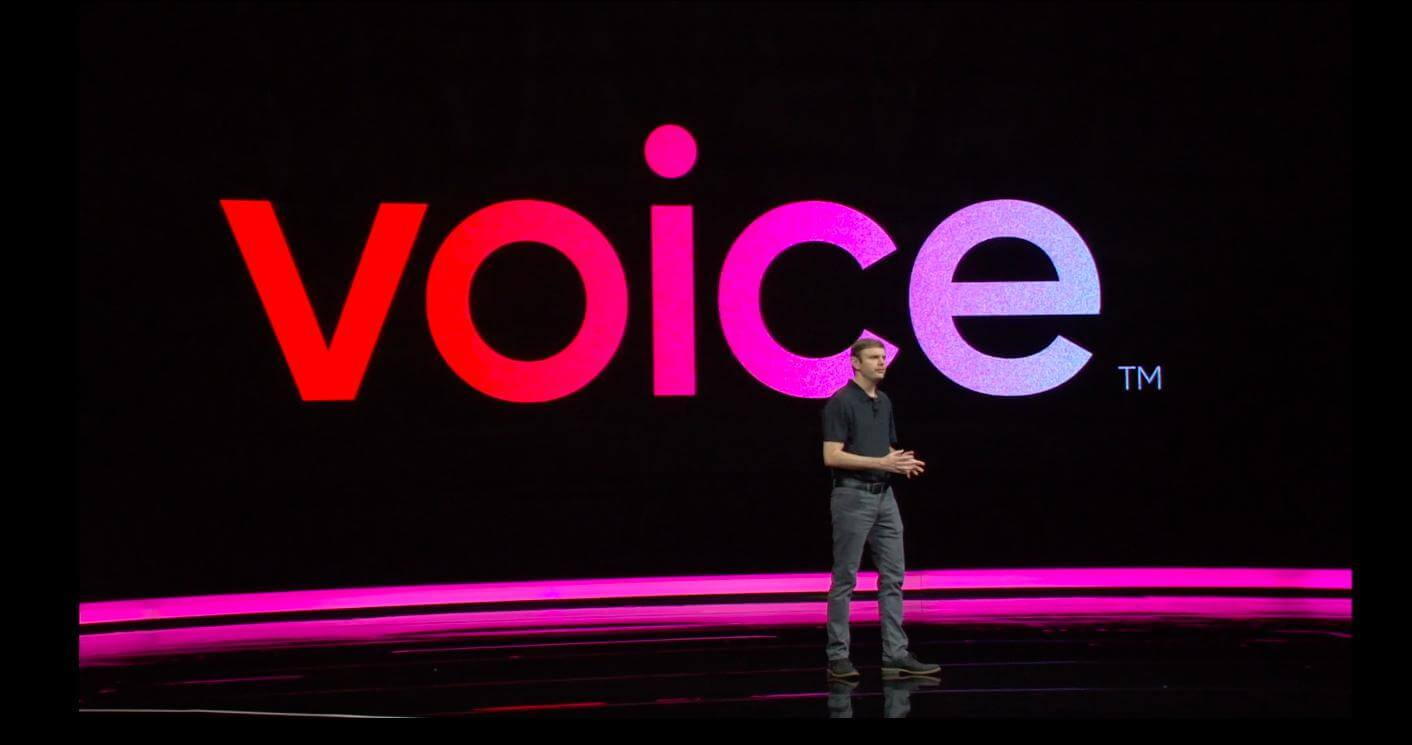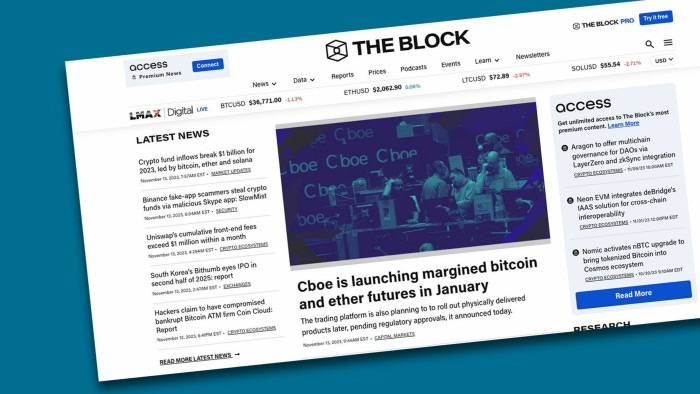Two major cryptocurrency media outlets change hands: CoinDesk and The Block have been acquired
#577
GM,
The Winter Member Gathering ended satisfactorily last weekend, and we are currently organizing the photos from the event. When we first held the Member Gathering a few years ago, I felt a sense of holding a shareholders' meeting. The relationship between myself and the members didn't feel like a store and customers; it felt more like a company and its shareholders. Later, after getting to know DAO1, I felt that describing it as a mutual interdependence between a cooperative and its members was more appropriate.
The event was divided into two parts. The first part was "Blocktrend's Heroic Journey," where I introduced the history, current operations, and future development of Blocktrend. The second part invited the hosts of "From Zero to Utopia" and "Listen to DAO," Noah and Jacky, to record a live podcast together. Although both programs have already released 10 episodes on the Blocktrend channel, the hosts were relatively unfamiliar to the audience. So, I decided to invite them in person to chat and allow everyone to quickly grasp the output of the past year. From the live questions, I also came up with a new experiment that Blocktrend could undertake in 2024. The recordings and videos from that day will be released gradually. Let's get to the main topic.
The media is an important channel for people to grasp the pulse of the cryptocurrency world. Ideally, reporting should be impartial, explaining facts and different perspectives, and exerting influence. However, as we all know, the actual operation of the media is far from this ideal, most of the time being driven by financial considerations. Only a few reports can be considered high-quality content and receive recognition with journalism awards.
Winning an award should be a good news, but the employees of CoinDesk might not see it that way. CoinDesk won an award for a report in 2022, but this report ultimately backfired, leading to massive layoffs and the company being sold to Bullish, a relatively unknown small exchange in the industry. This is probably something CoinDesk did not anticipate.
CoinDesk
According to Bullish's press release:
Bullish, the fastest-growing legitimate exchange, announced that it has acquired CoinDesk, a comprehensive media, event, and index platform specializing in researching the financial future under the Digital Currency Group (DCG).
CoinDesk is currently the most influential media outlet in the global cryptocurrency world. Not only is its reporting widely quoted by various media, but its annual Consensus conference is also a "must-attend" event in the industry. Despite the two-day ticket costing $1,199 (about 38,000 New Taiwan Dollars), it still attracts over 15,000 entrepreneurs, major companies, and investment institutions.
CoinDesk was founded in 2013 and can be considered a veteran company in the cryptocurrency industry. The founder, Shakil Khan, was also an investor in Spotify and BitPay, a Bitcoin payment service provider.
At the time, during the second bull market in the history of the cryptocurrency industry, the price of each BTC surged from $20 to $1,000. Khan noticed that many entrepreneurs sought advice from him, but cryptocurrency information was scattered and challenging to track. The most well-known media outlet at the time was "Bitcoin Magazine," co-founded by Vitalik Buterin in 2011 (still operational today). However, Khan thought the content of "Bitcoin Magazine" was too technical for the public to understand.
Therefore, Khan assembled a team to track the latest trends on Bitcoin forums and wrote reports that the public could comprehend, aiming to establish CoinDesk as the "Reuters of Bitcoin." Later, CoinDesk also released a Bitcoin for dummies and began organizing the Consensus conference in 2015. To outsiders, it seemed to be impressively managed.
Unfortunately, just six months after CoinDesk was founded, the cryptocurrency market entered the second bear market in history, and the price of each BTC plummeted by 80% from its historical high of $1,000. Due to the lack of historical insights into bull and bear cycles, nobody knew if BTC would recover. Even Khan had doubts, and eventually, in 2016, he sold CoinDesk for $500,000 to the financially stronger Digital Currency Group (DCG).
DCG, originally focused on trading, owns the well-known Grayscale Fund2 and the institutional service-oriented Genesis Trading exchange3. Shortly after CoinDesk's acquisition, it encountered the third bull market in history, with cryptocurrency prices soaring and Consensus attendance increasing year by year. In just the first half of 2018, it earned approximately $20 million in revenue, 40 times the initial acquisition price. CoinDesk became a money-making assistant for DCG.
Despite its abundant resources and growing influence, CoinDesk unexpectedly found itself in the spotlight last year when it bombshell about FTX's financial situation. Although the report received journalistic recognition, it ultimately backfired.
Change of Ownership
FTX remained the world's second-largest exchange last year. DCG had frequent business dealings with FTX, and logically, it should have obtained firsthand information from CoinDesk if there were any market movements. Whether deciding to suppress news unfavorable to themselves or finding ways to hedge would have been reasonable measures.
However, it remains uncertain whether CoinDesk's news team operated independently or if DCG underestimated the impact of the report. From the results, DCG also became a victim of the FTX incident, even facing the brink of bankruptcy.
DCG as a whole started cutting expenses, and its subsidiary CoinDesk could not stay aloof. Over the past year, CoinDesk's editorial team underwent significant layoffs, with 45% of the staff being let go. Even the editorial supervisor of the award-winning report, Tracy Wang, could not escape the fate of being laid off. DCG's financial situation has yet to show improvement, and ultimately, they had to sell CoinDesk to survive.
The new owner of CoinDesk, the Bullish exchange, is relatively unknown in the market, but its backing comes from a significant player – Block One, the parent company of EOS.
Block One gives the impression of being a "wealthy playboy." It has few tangible achievements in the cryptocurrency industry, and its notable endeavors are often closely tied to money. For instance, EOS was once considered the number one competitor to Ethereum, raising $4 billion during the ICO frenzy in 2017, remaining a record holder to date. However, few people talk about EOS now. Later, Block One ventured into decentralized social media, investing $150 million in creating the VOICE social platform and spending $30 million to acquire the domain name Voice.com. In the end, all this money went down the drain.
Now, Block One has invested in CoinDesk, making it challenging for people to believe that it will manage it diligently. Besides CoinDesk, there is recent news of another cryptocurrency media outlet, The Block, being acquired. According to media reports:
Singaporean venture capital firm Foresight Ventures announced the acquisition of 80% of The Block's shares at a valuation of $70 million. The transaction has been completed, and it will help expand Foresight's media business into the US and European markets. Foresight is also an investor in cryptocurrency news websites "ForesightNews" and "Moving Block, Moving Trend."
Founded in 2018, The Block initially received $4 million in venture capital funding and became a significant news source in the cryptocurrency industry within a few years. However, in 2022, The Block was affected by FTX, as its daily operations heavily relied on financial support from SBF.
You might find it strange that, despite receiving investment from venture capital, they still needed financial support from SBF. The reason is that in 2021, The Block's employees proposed buying back company shares from venture capitalists, transforming the company into one that is 100% employee-owned, allowing the media to operate independently, with employees taking responsibility for profits and losses. At that time, it seemed like an innovative move, and The Block was considered a breath of fresh air in the cryptocurrency media landscape.
However, the backstory is that if employees wanted to become shareholders, they had to spend money to buy shares from the venture capitalists. Yet, venture capitalists are not charitable organizations, and if employees are wealthy enough to become shareholders on their own, do they still need to work?
After the FTX incident erupted, people discovered that The Block was actually receiving funds from SBF, and SBF even bought a $16 million mansion in the Bahamas for The Block's CEO. Some netizens compared The Block's reports before and after the FTX incident, raising suspicions. The trust in The Block hit rock bottom. This time, selling 80% of its shares to venture capitalists again likely indicates that operational funds have bottomed out.
The consecutive changes in ownership of two major cryptocurrency media outlets within a month are not coincidences, reflecting the current subdued market sentiment. If these media outlets want to avoid closing down, they must find a reliable "rich dad." The question is, who is the most stable support?
Media in the Crypto Community
The CoinDesk editorial team is well aware of the reasons behind their transition from DCG to the current ownership. When handling news related to Bullish and Block One in the future, they will undoubtedly exercise extra caution. If employees recall the "lesson" from the FTX incident before publishing reports, self-censorship is inevitable. Similarly, would the major investor, Block One, turn a blind eye to the painful lesson learned by DCG and allow the CoinDesk editorial team to operate entirely independently?
Cryptocurrency media, being closer to money, should be subject to higher scrutiny. This time, CoinDesk has brought in Matt Murray, former editor-in-chief of The Wall Street Journal, to serve as the chairman of the editorial committee. Murray is unlikely to jeopardize his own reputation by favoring Bullish Exchange or Block One! Foresight Ventures also claimed in their press release that The Block would operate independently without interference.
Although both media outlets emphasize their independence, Block One has an extensive investment portfolio, and Foresight Ventures is no stranger to it. When faced with severe conflicts of interest, what should the editorial teams do? Publishing a report may be unfavorable, but if they don't, can they still uphold the promises made earlier?
The ideal scenario is for media outlets not to consider conflicts of interest inherently, becoming community-based media rather than capitalist media.
The constant buying and selling of cryptocurrency media outlets are most detrimental to us as readers. It's challenging to determine if a news story has ulterior motives, and the responsibility for fact-checking shifts from the media to the readers. For example, when CoinTelegraph falsely claimed on Twitter that the Bitcoin Spot ETF had been approved, many people suffered losses. These are visible losses, and the intangible losses caused by being misled are even more challenging to quantify.
I believe the fundamental issue lies in misaligned economic incentives. If cryptocurrency media could operate like cooperatives, owned and operated collectively by all members, there would be no need to manufacture news to deceive themselves. This not only avoids conflicts of interest but also prevents media brands from being sold back and forth in the market's bull and bear cycles. In essence, what cryptocurrency media needs is not the most reliable yet hands-off "rich dad" but a way to make the entire community its "rich dad."
Blocktrend is an independent media platform sustained by reader-paid subscriptions. If you think the articles from Blocktrend are good, feel free to share this article, join the member-created Discord for discussion, or add this article to your Web3 records by collecting the Writing NFT.
In addition, please recommend Blocktrend to your friends and family. If you want to review past content published by Blocktrend, you can refer to the article list. As many readers often ask for my referral codes, I have compiled them into a single page for everyone's convenience. You are welcome to use them.





